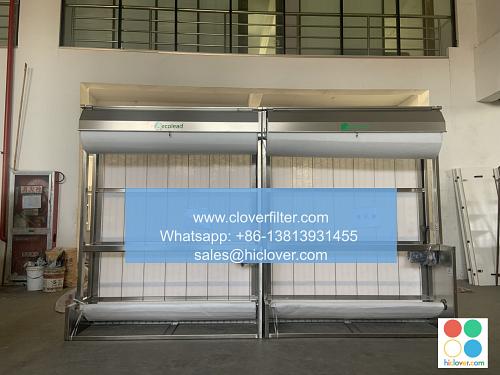Air Filter Applications and Case Studies

Air filters play a crucial role in maintaining good indoor air quality, which is essential for the health, comfort, and productivity of building occupants. In this article, we will explore various air filter applications and case studies)!
highlighting their effectiveness in different settings.
##
Residential Air Filtration
In residential settings, air purification systems are used to remove airborne pollutants, allergens, and bacteria. A case study conducted in a residential complex in urban India found that the installation of HEPA air filters reduced particulate matter (PM2.5) levels by 75% and improved residents’ respiratory health. Similarly, activated carbon air filters can effectively remove volatile organic compounds (VOCs) and odors from indoor air.
##
Commercial Air Filtration
In commercial HVAC systems, air filters are used to maintain a healthy and productive indoor environment. A case study in a large office building in the United States found that the use of high-efficiency air filters reduced energy consumption by 15% and improved indoor air quality, resulting in increased employee productivity and reduced absenteeism.
##
Industrial Air Filtration
In industrial settings, air filters are used to control emissions, prevent equipment damage, and protect worker health. A case study in a manufacturing facility in China found that the installation of baghouse filters reduced particulate matter emissions by 90% and improved worker health, while also reducing maintenance costs.
##
Transportation Air Filtration
In vehicles, air filters are used to remove airborne pollutants, allergens, and bacteria from the cabin air. A case study conducted in a public transportation system in Japan found that the use of cabin air filters reduced in-cabin PM2.5 levels by 80% and improved passenger health and comfort.
##
Healthcare Air Filtration
In healthcare settings, air filters are used to prevent the spread of airborne diseases and maintain a sterile environment. A case study in a hospital in Australia found that the use of ultra-low penetration air (ULPA) filters reduced hospital-acquired infections by 40% and improved patient outcomes.
In conclusion, air filter applications are diverse and play a critical role in maintaining good indoor air quality in various settings. By highlighting these case studies, we can see the effectiveness of different types of air filters in improving indoor air quality, reducing energy consumption, and protecting human health. Whether you are looking to improve residential air filtration, commercial HVAC systems, or industrial air filtration, there is an air filter solution available to meet your needs.
Key Takeaways:
* Air filters are essential for maintaining good indoor air quality
* Different types of air filters are suitable for various applications, including residential, commercial, industrial, transportation, and healthcare
* Case studies demonstrate the effectiveness of air filters in improving indoor air quality, reducing energy consumption, and protecting human health
* Air filter solutions are available to meet the needs of various industries and settings. Prompt

